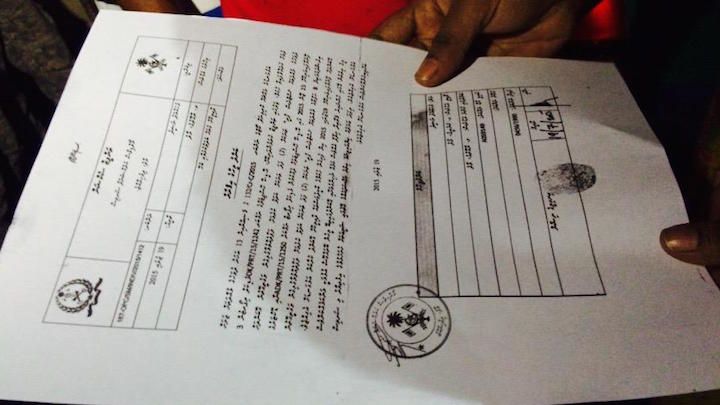Forensic test finds Nasheed’s house-imprisonment document authentic
Lawyers said foreign forensic experts had compared the July 19 document with similar documents provided by the Maldives Correctional Services and found that the same government ink stamp was used on all three documents.

07 Dec 2015, 09:00
Forensic analysis has confirmed the authenticity of a disputed document on the commutation of former President Mohamed Nasheed’s 13 year jail term to house arrest, his lawyers have said.
Lawyer Hassan Latheef said foreign forensic experts had compared the July 19 document with similar documents provided by the Maldives Correctional Services and found that the same government ink stamp was used on all three documents.
“The same ink stamp used on the disputed document of July 19 was used on documents provided by the MCS on 21 and 23 June, 2015,” Latheef said.
The main opposition Maldivian Democratic Party maintains Nasheed’s re-imprisonment on August 23 was illegal as the government had commuted his sentence amidst talks on political reconciliation.
Become a member
Get full access to our archive and personalise your experience.
Already a member?
Discussion
No comments yet. Be the first to share your thoughts!
No comments yet. Be the first to join the conversation!
Join the Conversation
Sign in to share your thoughts under an alias and take part in the discussion. Independent journalism thrives on open, respectful debate — your voice matters.




